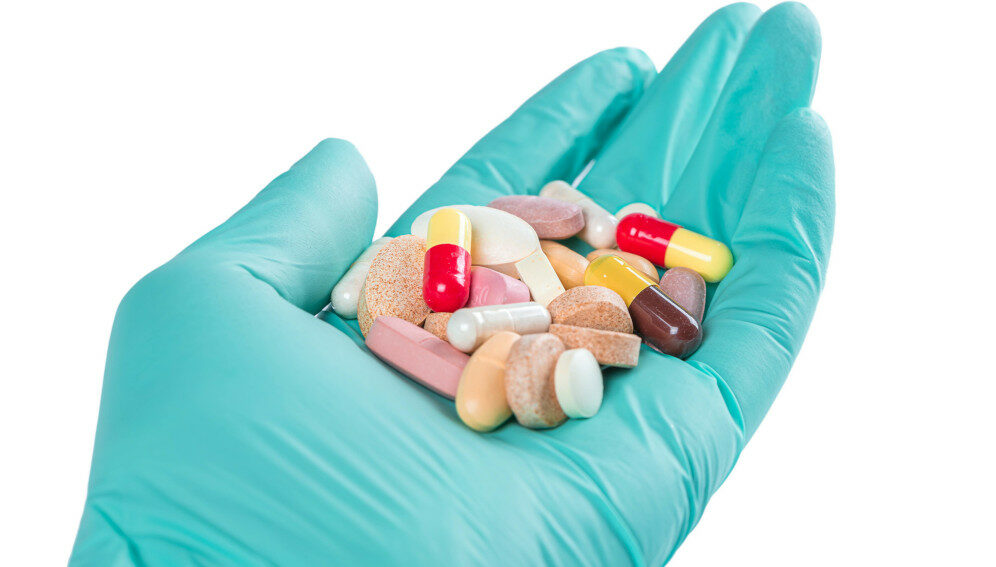10/06/22
Improve antibiotics access to beat ‘silent pandemic’

By: Ranjit Devraj
Send to a friend
The details you provide on this page will not be used to send unsolicited email, and will not be sold to a 3rd party. See privacy policy.
[NEW DELHI] Better access to antibiotics and antiviral medicines could slow down the spread of drug resistance in the global South, according to a new study released Thursday (9 June).
Following decades of careless exposure to antibiotics, superbugs are now widespread and, according to the World Health Organization, represent a “global crisis that threatens a century of progress in health”.
The new Access to Medicine Foundation paper argues that antimicrobial resistance is rising faster than predicted. The non-profit research organisation says better access to antibiotics and antifungals is “especially urgent” in low- and middle-income countries.
“The idea that increased access to antibiotics can help fight antimicrobial resistance may sound paradoxical,” Jayasree K. Iyer, chief executive officer of the Foundation, told SciDev.Net. “However, shortages of essential medicines in low- and middle-income countries lead to patients receiving no treatment or less effective alternatives, giving bacteria and fungi opportunities to develop resistance.”
Worldwide, an estimated 4.95 million deaths associated with bacterial antimicrobial resistance occurred in 2019 with more than one million people dying as a direct result, according to analysis published in The Lancet.
Antimicrobial resistance is developing into a “silent pandemic” that kills more people than malaria and HIV/AIDS combined, with the worst-hit regions in Sub-Saharan Africa, according to the Foundation.
Iyer said that making antibiotics and antifungals accessible in low- and middle-income countries was particularly challenging for generic medicine manufacturers. “They face thin profit margins, resource-intense registration procedures and fragile supply chains,” she said.
“Also, while pharmaceutical companies expect governments to clarify demand levels and prioritise stewardship measures, governments expect companies to first communicate which antibiotics or antifungals will be introduced into their health systems, leading to a mismatch in expectations.”
Stewardship refers to actions which promote the responsible use of antimicrobials, whether at an individual, national, or global level.
“The idea that increased access to antibiotics can help fight antimicrobial resistance may sound paradoxical.”
Jayasree K. Iyer, chief executive officer Access to Medicine Foundation
The Foundation’s paper uses case studies to illustrate how pharmaceutical companies can steer around such complex challenges and make antibiotics and antifungals more widely available. “Our research shows that innovative approaches from drug makers are possible and can really make a difference to the people most at risk from resistant infections,” Iyer said.
Wider product registration, technology transfers, and public-private partnerships that aim to deliver sustainable supplies are among tools available to companies to increase drug availability. In many cases, implementing these tools requires government and multinational organisations to work alongside drug companies.
In Nigeria, Sanofi and local manufacturer May & Baker Nigeria have used technology transfer and partnership to produce half a million boxes annually of the off-patent broad-spectrum antibiotic metronidazole (Flagyl), used to fight intra-abdominal infections. Similarly, in India, local company Cipla responded to calls from hospitals by registering and distributing the generic reserve antibiotic colistin in the country under tight stewardship.
In 2021, when an epidemic of mucormycosis (black fungus) broke out in India as a result of poorly-regulated COVID-19 therapies and the failure of basic healthcare, the Indian government requested Cipla to rapidly scale up manufacture of the antifungal, amphotericin B.
Leena Menghaney, a lawyer with Medecins Sans Frontieres (MSF) in New Delhi, said the issue of microbial resistance in a country like India was “complex and begins with proper diagnosis and treatment of disease and the existence of a properly functioning public health delivery system — this was borne out by the mucormycosis epidemic in the middle of the COVID-19 pandemic”.
The Global Fund to Fight AIDS, Tuberculosis and Malaria and other international health organisations have partnered with companies to address access to drugs for HIV/AIDS, tuberculosis and malaria. Despite being donor-driven and less sustainable in the long term, these partnerships were able to consistently implement stewardship programmes for essential medicines, the Foundation said.
“Ensuring that such initiatives move from being the exception to the norm, supported by excellent stewardship measures to help prevent the spread of resistant infections will require commitment and partnership from all sides,” said Marijn Verhoef, director of operations and research at the Foundation.
This piece was originally produced by SciDev.Net’s Global desk.















